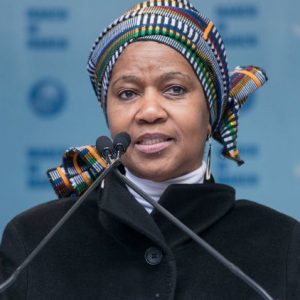A council of 35 individuals from 23 countries, including Nadia Murad and Denis Mukwege called on the leaders of Canada, France, Germany, Italy, Japan, the United Kingdom, and the United States to confront the laws in their own countries that continue to penalise women on account of their gender.
The G7 is an international intergovernmental economic organisation of seven of the largest advanced economies in the world. These countries combine to hold 40% of the world’s wealth, with only 10% of its population. Australia is not part of the cohort, though this year we’ve been given a seat at the table as an observer. This includes a special leaders’ dinner for our PM, Scott Morrison.
Yazidi survivor of genocide and advocate for victims of trafficking, Nadia Murad, and Congolese gynaecologist known for his work in helping women who have survived sexual violence, Denis Mukwege, are among the G7’s Gender equality advisory council. The council consists of 32 women and 3 men from 23 different countries.
In a statement on the council’s website, it says the host of this year’s G7 summit, French President Macron, sought to “surround himself with men and women from around the world who are determined to provide their experience, expertise and determination to support the great global cause of equality between men and women.”
President Macron is building this initiative on the recommendations instigated during Canadian PM Justin Trudeau’s G7 presidency in 2018 under his “Making Gender Inequality History” campaign.
The aim continues to be this: propose tangible tools and solutions to enhance gender equality worldwide and significantly enhance aid to promote women’s rights and gender equality.
The audience over the weekend included U.S president Donald Trump. He was there, despite his own administration complaining that President Macron’s focus was on “niche issues” such as climate change, gender equality. Trump seems to want the agenda to be firmly planted around issues his has historically been more comfortable addressing, such as global economics and trade.
Phumzile Mlambo-Ngcuka, the head of UN Women, delivered one clear message during her address: “We call upon you to pronounce 2030 as the expiry date of gender inequality.”

This initiative is part of the “the Biarritz Partnership”, an international, borderless call to arms for all nations to adhere to international agreements concerning women’s rights. The G7 countries are attempting to lead the way in implementing legislation that will guarantee gender equality for their citizens. The council also announced they will set up an accountability framework, but have yet to elaborate on what this looks like or how it will operate.
So what should these leaders do?
The council took to brainstorming a few ideas and generated a list of ’progressive laws’ for the 7 nations to consider. Examples offered include Denmark’s new laws on cyber-harassment (they also have a female prime minister, Mette Frederiksen), and
Morocco’s institutionalisation of gender equality throughout budget processes.
Iceland’s equal pay laws; last year, they became the first country in the world to make it illegal to pay men more than women. In France, there are streets harassment laws, which criminalise sexist insults, degrading or humiliating comments, or offensive “sexual or sexist” behaviour towards a person in public areas, schools or workplaces.
Also in France, there’s a law that criminalises anti-abortion websites (perhaps something New South Wales needs to consider, judging by what we’ve seen in the last few weeks – An ABC analysis of the top 15 Facebook communities from both sides of the abortion debate found the groups against the bill have 10 times the share of voice and activity of their opponents)
In a Guardian article penned by four of the council members, they said, referring to the dire statistics globally of women’s rights (including that women are overrepresented in vulnerable jobs and are paid on average 23% less than men) – “None of this will happen unless countries properly fund the independent women-focused and women-led organisations that hold legislators to account on their commitments.”
Most country have discriminatory laws that penalise women: look at our own; if you live in New South Wales, it remains that unlawfully procuring an abortion is an offence punishable by imprisonment for up to ten years. And our own politicians are trying to keep it that way.
The Guardian article quote above included the voice of actress Emma Watson, who is part of the council, and continues to advocate for worldwide gender equality. She founded HeForShe initiative and is in her fifth year as a Goodwill Ambassador for UN Women.

The G7 was created in the 1970s as an annual gathering of political leaders to discuss politic-centric topics including global security, economy and energy. Of all Country leaders as of 2019, Angela Merkel, Chancellor of Germany is the only woman.
It’s good to see gender equality getting the political attention it deserves. It ought to be a natural law that women are awarded the same respect, dignity and opportunity as men on this planet, regardless of where you live. Alas, this is not the reality you nor I live in. Will the G7’s gender equality advisory council change things? Will new laws be stapled in as solid legislative foundations? How much power does the G7 body have, realistically? Time will tell.


